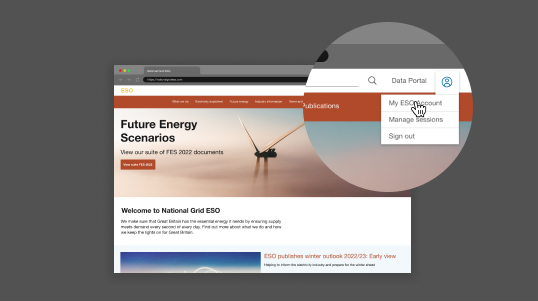
Our Future Energy Scenarios - a glimpse of a net zero energy system
27 Jul 2020 - 4 minute read
Every year we share our Future Energy Scenarios (FES). These scenarios look at the future of energy; including the challenge of meeting net zero and the impact of this on future energy supply and demand. Our Senior Strategy Manager Mark Herring introduces our 2020 Future Energy Scenarios.
Analysing the future of energy is never easy and the uncertainty driven by coronavirus has brought new challenges for the team working on our Future Energy Scenarios (FES).
Although the full effects of the pandemic came too late to be factored in to this year’s FES, it will of course have a significant impact on our energy systems and will no doubt feature heavily in next year’s analysis.
Level of societal change
Our scenarios outline four different pathways for the future of energy over the next 30 years, considering how much energy we might need and where it could come from. We’ve talked to over 600 industry experts to build our insight and it’s clear that whilst net zero is achievable, there are significant changes ahead. 2050 may seem far in the future but, in energy investment terms, it is just around the corner and hitting the target means starting the journey now. That’s why this year we’re looking at the facts and figures through a new lens – the level of societal change required.
"Consumers will need greater understanding of how they use energy and the effects of this on our energy system"
Awareness of the causes and impacts of climate change is rising, and more action is being taken across society. Consumers will need greater understanding of how they use energy, the effects of this on our energy system and how to adapt the way they use energy in order to meet the net zero target.
Energy efficiency and decarbonising transport
FES shows improving energy efficiency across all sectors is a must and will mean fundamental changes for energy consumers, particularly in transport and domestic heating. 2050 could see 20 million heat pumps or 17 million homes with hydrogen boilers, with as many 8 million homes actively managing their heating demands by storing heat and shifting their use outside of peak periods. These developments require urgent policy decisions but can enable all low carbon technologies - and support meeting peak and annual electricity demands too.
All of our scenarios also illustrate that electrification is key to the decarbonisation of transport. Even in the slowest decarbonising future, there will be no new cars sold with an internal combustion engine after 2040. By 2050, up to 80% of households with an electric vehicle will ‘smart charge’ and up to 45% actively provide vehicle-to-grid services, offering up flexible electricity to help manage peaks and fill troughs in demand. Open data and digitalisation underpin this change and are critical to navigating increasing complexity at lowest cost for consumers.
Of course, alongside these trends there are significant changes ahead for the energy industry too. Across all scenarios we see a growth in renewable energy generation, including significant expansion in installed offshore wind capacity. The analysis shows the deployment of hydrogen and carbon capture and storage are critical in achieving net zero too, with hydrogen supplying 59% of total end-use net zero energy in the most stretching scenario of System Transformation.
Unlike previous years, where an 80% emissions target left some sectors of society relatively unchanged, FES 2020 explores solutions for every sector. Shifting away from high carbon fuels by 2050 will be hard and for some sectors it may not be possible, meaning negative emissions needed in some. FES shows the power sector could be negative by 2033, using Bioenergy with Carbon Capture and Storage to generate negative emissions alongside low carbon sources of energy and the scaling up non-traditional sources of flexibility such as demand side response and storage.
A coordinated approach
It’s clear from FES our energy system will need to rapidly transform to meet the changing needs of consumers and society. There is already significant progress being made, including the ESO planning to operate a zero-carbon electricity system by 2025, but the fundamental changes outlined and the need to build back strongly from COVID-19 make it more important than ever to have a coordinated approach to decarbonising the whole energy sector.
Read our 2020 Future Energy Scenarios in full here.
